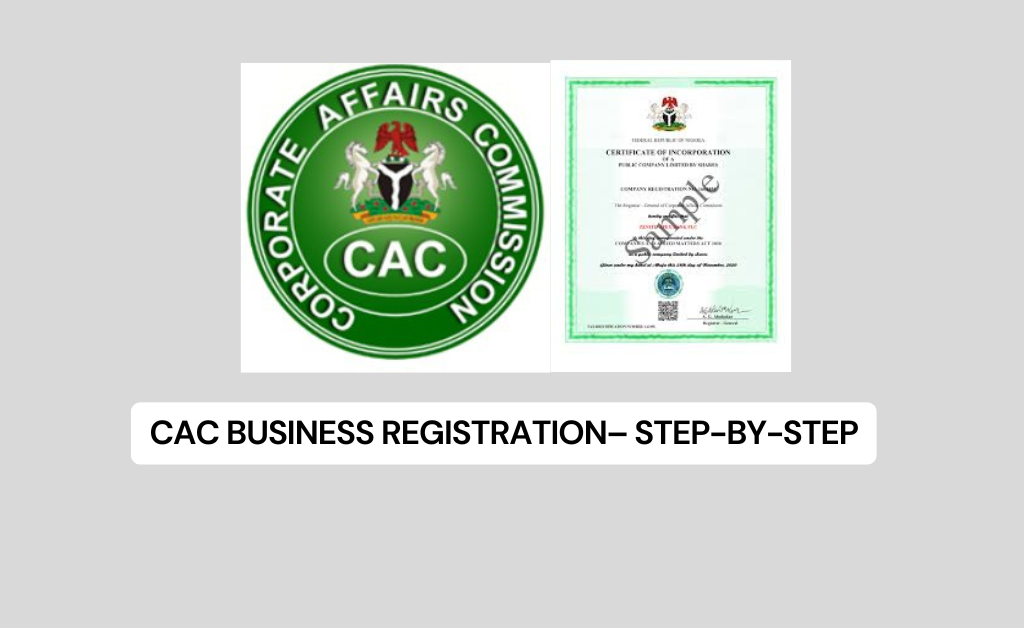Picture this: you’ve poured blood, sweat, and tears into building your dream business in Nigeria, only to be blindsided by a hefty tax penalty because you didn’t have a TIN. The sinking feeling in your chest when you realize you can’t open a corporate bank account, apply for government grants, or even bid on lucrative contracts—because the Federal Inland Revenue Service (FIRS) doesn’t recognize you—can paralyze the most ambitious entrepreneur.
That’s where the magic of a Tax Identification Number (TIN) comes in. Issued by the FIRS, your TIN is far more than just a set of digits—it’s your business’s passport to legal operation, seamless tax filings, VAT registration, and access to critical financial services. Without it, you risk fines, missed opportunities, and the frustration of watching your competitors speed ahead while you’re stuck navigating red tape.
In this article, you’ll discover exactly what the FIRS is and why securing a TIN is non‑negotiable for your success. We’ll walk you through who needs a TIN, the documents to prepare, and a clear, step‑by‑step guide to register for FIRS and get your TIN online. Plus, we’ll answer the most burning “People Also Ask” questions—like how long it takes to get your TIN, whether it’s free, and what to do if your application is rejected—so you can complete the process with confidence and avoid costly missteps. Let’s get started on transforming that anxious “what‑if” into a solid, compliant foundation for your business.
What Is the Federal Inland Revenue Service (FIRS)?
Every tax‑compliant business journey in Nigeria begins with understanding the Federal Inland Revenue Service (FIRS). As the country’s apex tax‑collecting agency, FIRS sets the rules and ensures that both individuals and organizations meet their tax obligations under Nigerian law.
Definition and Mandate under Nigerian Law
The FIRS was established by the Federal Inland Revenue Service (Establishment) Act 2007 to consolidate and streamline federal tax administration. Its mandate encompasses assessing, collecting, and enforcing the payment of all federal taxes—ranging from company income tax to value‑added tax and withholding tax.
By centralizing these functions, FIRS aims to eliminate duplication, reduce bureaucratic delays, and improve revenue mobilization for the federal government.
Beyond collection, FIRS is empowered to make regulations, issue tax rulings, and negotiate tax treaties on behalf of Nigeria. The agency also interprets tax legislation, providing binding guidelines to taxpayers and agents, ensuring consistency and fairness in tax administration.
Core Functions: Tax Assessment, Collection, Enforcement, and Taxpayer Education
At its heart, FIRS assesses taxable income and liabilities for registered taxpayers, calculating amounts owed based on statutory rates and reliefs. For corporate entities, this means scrutinizing financial statements and applying the Companies Income Tax Act.
Once assessed, the agency facilitates payment through multiple channels—including its e‑registration portal, approved banks, and Remita—making it easier for taxpayers to discharge their obligations.
When payments are late or under‑declared, FIRS deploys enforcement measures such as penalties, interest charges, and audits. These tools incentivize voluntary compliance and deter willful evasion. Equally important is FIRS’s role in taxpayer education: through seminars, digital resources, and outreach programs, the agency demystifies tax processes and promotes a culture of compliance.
How FIRS Interacts with Businesses and Individuals
Interaction begins at registration: both new businesses and individual earners must sign up on the FIRS e‑registration portal to obtain a Tax Identification Number (TIN). This unique ID anchors all subsequent tax dealings, from filings to refunds.
Throughout the year, FIRS issues notices—for estimated tax payments, VAT returns, and remittance deadlines—via email, SMS, and its portal dashboard, keeping taxpayers informed of their obligations.
When discrepancies arise, businesses and individuals may face audits or be asked to provide supporting documentation. FIRS also runs a helpdesk and state‑level offices to assist with technical queries, dispute resolution, and appeals, ensuring that taxpayers have accessible channels for clarification and redress.
What Is a Tax Identification Number (TIN) & Why It Matters
A Tax Identification Number (TIN) is the cornerstone of every formal tax relationship in Nigeria. Issued by FIRS, the TIN serves as a lifelong, unique identifier for all your tax activities—simplifying compliance for individuals and businesses alike.
Definition of TIN as a Unique Identifier for All Tax Transactions
A TIN is a numeric or alphanumeric code assigned to taxpayers upon successful registration on the FIRS portal. Every tax return, payment, and correspondence is tied to this code, enabling efficient tracking and record‑keeping.
Unlike temporary references, your TIN remains constant—regardless of changes in employment, business structure, or location—ensuring continuity in your tax history and preventing duplication.
In effect, the TIN functions like a social security number in other jurisdictions, but specifically for tax administration. It consolidates all your federal tax interactions—company income tax, withholding tax, VAT, and more—under one umbrella.
Benefits: Seamless Tax Filing, Banking, and Grants
With a TIN in hand, filing returns becomes a streamlined process: your profile auto‑populates core details, reducing manual entry errors and saving time. You can file income tax, VAT, and other statutory returns through the same portal.
Moreover, most banks require a TIN to open corporate or business accounts. This requirement safeguards the banking system and aligns financial reporting with tax compliance, giving you access to loans, credit facilities, and merchant services.
Beyond banking, a TIN is often a prerequisite for government grants, concessions, and agency registrations (e.g., NAFDAC, SON). Granting bodies use the TIN to verify your tax status before disbursing funds—so having one unlocks opportunities for subsidized financing and public‑sector contracts.
Risks of Operating without a TIN
Operating without a TIN exposes you to legal and financial penalties. FIRS can impose fines of up to ₦500,000 for non‑registration, plus daily interest on outstanding taxes—quickly eroding your profit margins.
Lacking a TIN also bars you from hiring staff compliantly: you cannot remit Pay‑As‑You‑Earn (PAYE) deductions, exposing you to labor disputes and regulatory sanctions.
Furthermore, without a recognized tax identity, you’re ineligible for many government‑sponsored programs, contracts, and incentives—severely limiting your growth trajectory and ability to scale your operations.
Who Needs a TIN in Nigeria?
Understanding whether you need a TIN is the first step toward compliance. FIRS mandates TIN registration for a broad range of taxpayers, ensuring every income stream and business activity is accounted for.
Individuals: Salaried Employees, Consultants, Freelancers
If you earn a salary from an employer, you must register for a TIN so your PAYE deductions can be properly remitted. Employers report these deductions against your TIN, ensuring your tax credit and compliance record are accurate.
Similarly, consultants and freelancers who invoice clients directly—especially if annual earnings exceed the personal relief threshold—need a TIN to file annual self‑assessment returns. This protects you from under‑assessment and penalties.
Even part‑time gig workers on platforms like ride‑hailing or freelance marketplaces should consider a TIN if their aggregate income breaches tax thresholds. Proper registration preempts disputes and streamlines any eventual audit.
Businesses: Sole Proprietors, Partnerships, LLCs, NGOs
Every registered business entity—whether a sole proprietorship, partnership, Limited Liability Company (LLC), or Incorporated Trustee—must have a TIN. For companies and partnerships, the TIN links to your CAC‑issued certificate and annual returns.
Sole proprietors operating under a business name must also obtain a TIN, separating personal and business tax obligations. Non‑profit organizations engaged in any taxable activities (e.g., sales, service fees) require a TIN to reconcile their exemption claims and remittances.
Without a TIN, businesses cannot legally file returns, making them vulnerable to enforcement actions and reputational damage among suppliers and clients.
Special Cases: Non‑Resident Aliens, Expatriate Contractors, Crypto Traders
Non‑resident aliens who earn income in Nigeria—such as expatriate contractors or foreign investors—must register for a TIN to fulfill withholding tax obligations and report transactions accurately.
Crypto traders and digital asset investors face increasing scrutiny; FIRS now insists on TIN registration before clearing crypto gains for tax reporting, preventing evasion through pseudo‑anonymous channels.
In each special case, the TIN ensures that even cross‑border income is captured, preserving Nigeria’s tax base and aligning with international OECD standards.
What You Need Before You Register (Documents & Information)
Preparation is the key to a smooth TIN application. Having all required documents on hand eliminates portal errors and speeds up approval.
Valid Means of Identification
Prepare one government‑issued ID: National Identity Number (NIN), voter’s card, driver’s license, or international passport. The FIRS portal will prompt you to upload a clear, unexpired scan of your chosen ID.
Double‑check that all personal details—name, date of birth, and photograph—match across your ID and your TIN application. Discrepancies are the leading cause of registration delays.
CAC Certificate of Incorporation (for Companies)
If you’re registering a business, you must upload a digital copy of your CAC Certificate of Incorporation or Business Name Registration. This verifies your corporate existence and aligns your TIN with your legal entity.
Ensure the CAC document is legible and includes your RC number, date of incorporation, and registered business name. FIRS cross‑verifies this information against CAC records.
Recent Passport‑Style Photograph and Proof of Address
A passport‑style photograph (white background, clear resolution) helps FIRS authenticate your identity, particularly for individuals and directors of companies.
You’ll also need proof of address—such as a utility bill or tenancy agreement—not older than three months. This confirms your primary place of residence or business and ensures FIRS can dispatch any hard‑copy communications if needed.
Functional Email Address and Phone Number
All OTPs, status updates, and TIN notifications are sent via email and SMS. Use an email address you check daily and a phone number active on any Nigerian network.
Avoid mobile numbers tied to multiple users (e.g., corporate SIM pools), as lost OTPs can stall your application indefinitely.
Step‑by‑Step Process to Register for FIRS and Get Your TIN Online
Registering for a TIN is a self‑service process that you can complete from anywhere, provided you have internet access and the documents above ready.
Step 1: Access the FIRS e‑Registration Portal
Navigate to https://tin.firs.gov.ng and click “Register.” Create an account using your email and phone number. You’ll receive an OTP to verify both channels before proceeding.
Once verified, log in to your new dashboard, where you’ll find options for individual or corporate registration. Select the appropriate category to begin.
Step 2: Complete the Taxpayer Profile Form
The profile form collects your personal or company details: name, date of birth or incorporation, address, email, and phone. For companies, you’ll also specify the nature of business and share capital.
Be precise: typos or mismatches with your CAC or ID documents trigger validation errors, requiring you to re‑enter data.
Step 3: Upload Scanned Documents and Verify Identity
Upload your chosen ID, CAC certificate (if applicable), passport photo, and proof of address. The portal will prompt you to crop and confirm each image to ensure legibility.
After uploading, you’ll receive another OTP—this time linked to identity verification. Enter it promptly; expired codes necessitate restarting the upload step.
Step 4: Review and Submit Your Application
Before final submission, the portal displays a summary of all entered data and uploaded files. Review each section carefully, correcting any mistakes on the spot.
Once satisfied, click “Submit.” You’ll see an acknowledgment page with your application reference number—save or screenshot this for future inquiries.
Step 5: Download Your TIN Slip or Certificate
FIRS typically processes applications within 7–14 business days. You’ll receive an email and SMS notification when your TIN is ready.
Log back into the portal, navigate to “My TIN,” and download a PDF slip. Print multiple certified copies for your records—banks, grant applications, and regulatory bodies will often request physical or certified digital versions.
How Much Does It Cost to Obtain Your TIN?
One of the most appealing aspects of TIN registration is its cost‑effectiveness, but there are a few scenarios where fees apply.
Standard E‑Registration Is FREE for Individuals and Most SMEs
FIRS does not charge a fee for the basic online TIN registration, making it accessible to salaried workers, consultants, and small businesses.
This waiver encourages voluntary compliance and reduces the financial barrier for emerging entrepreneurs.
Additional Fees: Expedited Processing, Certified Printouts, or Agent Services
If you need faster turnaround—say, for a time‑sensitive grant application—you can pay a nominal expediting fee at a FIRS office. Similarly, if you require a stamped, certified TIN slip, some service centers levy printing charges.
Engaging a tax agent to handle the process on your behalf may incur service fees ranging from ₦5,000 to ₦20,000, depending on complexity.
Budget Considerations for Professional Assistance or Notarization
While most individuals can DIY the portal steps, complex corporate structures or missing documents may necessitate legal or accounting support.
Factor in potential costs for notarizing affidavits, procuring additional certifications, or consulting fees—especially if you’re an NGO or multinational entity with specialized requirements.
Offline vs. Online Registration: Pros & Cons
Depending on your resources and comfort with digital tools, you may choose between FIRS’s online portal or traditional, in‑person registration.
Online: Speed, Transparency, and Anytime Access
The e‑registration portal operates 24/7, allowing you to apply at your convenience without visiting tax offices. Real‑time validation checks flag errors immediately, reducing back‑and‑forth delays.
You also receive automated status updates via email and SMS, eliminating guesswork. Overall processing times remain shorter than manual methods.
Offline: For Those without Reliable Internet
If you lack stable internet access or digital literacy, you can visit any FIRS state office to fill paper forms. Staff will guide you through data entry and document verification.
However, manual processes are prone to lost forms, longer queues, and inconsistent status communication—so plan for potentially extended wait times.
When to Engage a Tax Agent or Consultant for Hybrid Support
Small business owners with straightforward profiles will breeze through online registration. But if your case involves multiple directors, foreign registrations, or large share capital, a tax agent can handle both online filings and office visits.
This hybrid approach combines digital speed with expert oversight, ensuring compliance while freeing you to focus on core operations.
FAQs: People Also Ask
Below are concise, in‑depth answers to the most common questions Google users search about TIN registration in Nigeria.
How long does it take to get a TIN in Nigeria?
Most applications are processed within 7–14 business days after complete submission. If you applied late on a Friday or during a public holiday, expect slight delays as the clock resumes on the next business day.
For clearer timelines, check your portal dashboard for status updates. Using an accredited agent or paying an expediting fee at a FIRS office can sometimes shorten processing to 3–5 days.
Can I apply for my TIN online for free?
Yes. The FIRS e‑registration portal offers free basic registration for all individuals and SMEs. You only incur fees if you request expedited handling or certified printouts from FIRS service centers.
Avoid third‑party websites charging upfront fees—always register via the official portal at https://tin.firs.gov.ng to guarantee authenticity and zero hidden costs.
Do foreigners need a Nigerian TIN?
Any non‑resident earning taxable income in Nigeria—such as expatriate contractors, investors with Nigerian‑source dividends, or service providers—must register for a TIN.
This ensures correct withholding tax at source and compliance with Nigeria’s tax treaties. Foreigners can complete the same online process, though they may need to appoint a local representative for document notarization.
What if my TIN application is rejected?
Rejections usually stem from data mismatches—typos in your name, incorrect CAC details, or expired IDs. The portal will display error codes indicating which field needs correction.
Simply correct the errors, re‑upload the documents, and resubmit. If issues persist, visit a FIRS office with printed error reports and original documents for in‑person resolution.
How can I reprint my lost TIN slip?
Log into the e‑registration portal and navigate to “My TIN.” Click the download icon next to your registered profile to obtain a fresh PDF.
If you require a stamped, hard‑copy version, visit a FIRS service center with your portal reference number—there may be a small printing fee, but the reprint process is immediate.
Conclusion
Registering for a TIN with FIRS marks the transition from informal hustle to a recognized, compliant taxpayer—opening doors to banking services, government grants, and streamlined tax filings.
Recap of Importance
Your TIN is more than just an administrative requirement; it’s a strategic asset that saves you from hefty penalties, ensures lawful hiring, and unlocks financial opportunities. Without it, you risk fines, restricted operations, and missed growth prospects.
Call to Action
Don’t let bureaucracy hold back your ambitions. Gather your documents, visit https://tin.firs.gov.ng, and complete your TIN registration today—then share your experience or ask questions in the comments below. At MobelWealth, we’re here to guide you every step of the way!
















Loading comments...
Leave a Comment(Login required)